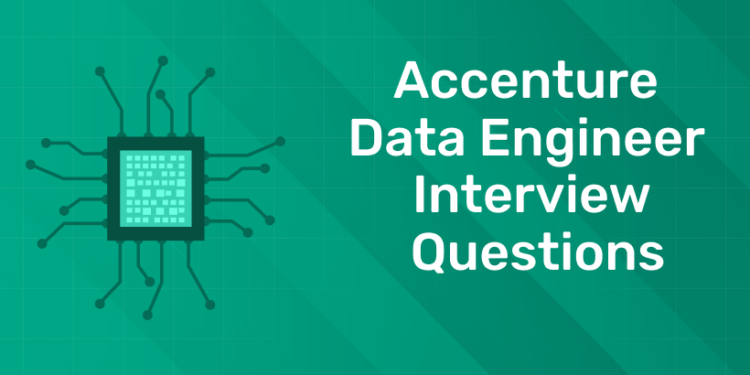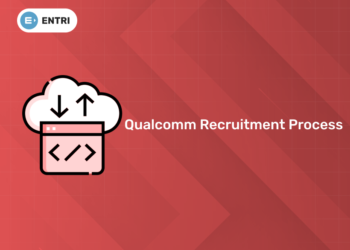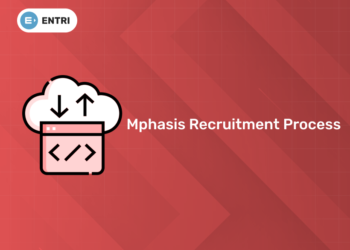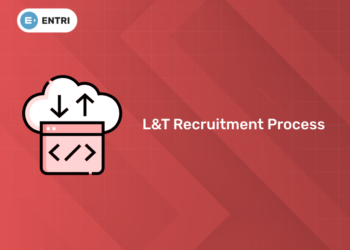Table of Contents
When preparing for a career in data engineering at Accenture, it’s important to have a clear understanding of the types of interview questions you might encounter. Accenture is known for its focus on innovation, problem-solving, and technical excellence, which means the interview process is both rigorous and comprehensive. This blog serves as a guide to help aspiring data engineers navigate the interview process by covering commonly asked Accenture data engineer interview questions.
Enhance your data science skills with us! Join our free demo today!
Why Join Accenture?
1. Innovative Work Environment
Accenture is at the forefront of cutting-edge technology, working on diverse projects that utilize AI, cloud computing, data analytics, and blockchain. It provides a platform to work on impactful solutions for some of the world’s leading organizations.
2. Learning and Development
Accenture invests heavily in employee growth by providing access to extensive training programs, certifications, and mentorship opportunities. Whether you’re enhancing technical skills or exploring leadership capabilities, you’ll find continuous learning resources to thrive in your career.
3. Global Exposure
With a presence in over 120 countries, Accenture offers opportunities to work with international clients, cross-cultural teams, and large-scale projects that have global significance.
4. Inclusive and Collaborative Culture
Accenture values diversity and inclusion, fostering an environment where every individual feels respected and empowered. Its commitment to employee well-being ensures a healthy work-life balance and supportive culture.
5. Impactful Work
Working at Accenture allows you to contribute to projects that create tangible value, whether it’s driving digital transformation, solving sustainability challenges, or building smart solutions for industries.
Accenture Data Engineer Interview Questions and Answers
1: Which of the following algorithms is most suitable for classification tasks?
Here are some commonly asked Accenture Data Engineer interview questions, along with suggested answers and explanations to help you prepare effectively:
1. Explain the role of a Data Engineer.
A data engineer designs, builds, and maintains data pipelines to collect, transform, and store data for analysis and reporting. Their primary responsibilities include:
- Extracting data from multiple sources.
- Transforming it into usable formats.
- Loading it into storage systems (ETL/ELT processes).
- Ensuring data quality, scalability, and security.
- Working with technologies like Hadoop, Spark, SQL, and cloud platforms.
2. What is the difference between ETL and ELT?
ETL (Extract, Transform, Load): Data is first extracted, transformed into a required format, and then loaded into the target system. It’s typically used in traditional data warehouses.
ELT (Extract, Load, Transform): Data is extracted, directly loaded into a data lake or warehouse, and then transformed within the storage system. ELT is suited for big data and cloud-based systems like Snowflake or AWS Redshift.
3. How do you optimize SQL queries for better performance?
- Use indexing to speed up searches.
- Avoid using SELECT *; specify only required columns.
- Optimize joins by filtering data early in the query.
- Use query execution plans to identify bottlenecks.
- Avoid complex subqueries; use Common Table Expressions (CTEs) where possible.
- Use appropriate data types and partitioning for large tables.
4. What is Apache Spark, and why is it used in data engineering?
Apache Spark is a distributed computing framework that processes large-scale data quickly using in-memory processing. It supports batch and stream processing, making it ideal for real-time analytics and ETL workflows. It integrates well with Hadoop and supports languages like Python, Scala, and Java.
5. How would you handle a situation where data from multiple sources is inconsistent?
- Identify the root cause of inconsistencies by analyzing source data.
- Standardize data formats and apply consistent rules during ingestion.
- Use data validation techniques to check for accuracy and completeness.
- Leverage data cleansing and deduplication tools to maintain quality.
- Document and maintain transformation logic for future reference.
6. Explain data partitioning and its benefits in big data.
Data partitioning divides a large dataset into smaller, manageable chunks for efficient processing.
Benefits:
- Improves query performance by scanning only relevant partitions.
- Reduces I/O operations and processing time.
- Enhances scalability and parallelism in distributed systems like Hadoop or Spark.
7. What are the key differences between a data warehouse and a data lake?
Data Warehouse: Structured data stored in predefined schemas, optimized for analytics and reporting.
Data Lake: Stores raw, unstructured, and structured data in its native format. It is flexible and ideal for big data processing and machine learning.
8. Which cloud platforms have you worked with, and how do you manage data on them?
Explain your experience with platforms like AWS, Azure, or Google Cloud.
For example:
On AWS: Use S3 for storage, Glue for ETL, and Redshift for analytics.
On Azure: Use Data Lake for storage, Data Factory for ETL, and Synapse for analytics.
Emphasize security practices like encryption, IAM policies, and backup strategies.
9. How do you ensure data quality in ETL pipelines?
Validate data during ingestion with schema checks and automated tests.
Remove duplicates and handle missing or inconsistent data.
Use logging and monitoring to identify issues during ETL processes.
Implement business rules to ensure accuracy and consistency.
10. What is your experience with version control in data engineering?
Explain how you use tools like Git for version control:
Manage code for ETL pipelines and scripts.
Collaborate with team members by maintaining branches for feature development.
Track changes, resolve conflicts, and ensure proper documentation for reproducibility.
11. Can you explain data modelling and its importance?
Data modelling is the process of creating a structured representation of data to ensure it meets business needs. It includes designing logical, physical, and conceptual models.
Importance:
- Provides clarity on data relationships and structure.
- Improves query performance and scalability.
- Ensures consistency in reporting and analytics.
12. What tools and technologies have you worked with in data engineering?
List relevant tools based on your experience, such as:
Big data tools: Hadoop, Spark.
ETL tools: Apache NiFi, Talend, Informatica.
Databases: SQL Server, MySQL, MongoDB, Cassandra.
Cloud platforms: AWS, Azure, GCP.
Programming languages: Python, Scala, SQL.
13. How do you monitor and debug data pipelines?
Use logging frameworks like Log4j or custom logs for ETL jobs.
Monitor performance using tools like Grafana or cloud-native solutions (e.g., AWS CloudWatch, Azure Monitor).
Debug pipelines by isolating problematic stages and testing with sample data.
14. What is your approach to scaling data systems?
Use distributed processing frameworks like Spark for parallel computation.
Partition and cluster data for faster access.
Leverage auto-scaling features on cloud platforms to handle variable workloads.
Optimize storage by compressing and archiving old data.
15. Describe a challenging data engineering project you worked on.
Share a real-world example, focusing on:
The problem you faced (e.g., migrating legacy systems, processing large datasets).
Tools and techniques used to solve it.
The impact and results of your work.
By preparing for these questions, you’ll be ready to demonstrate your technical skills, problem-solving abilities, and understanding of data engineering concepts during your Accenture interview.
Conclusion
Joining Accenture means being part of a company that values innovation, collaboration, and making a difference, all while supporting you in building a fulfilling and impactful career. Preparing for a data engineering interview at Accenture requires a strong grasp of technical concepts, practical experience with data tools, and the ability to solve real-world problems.
By focusing on topics like ETL processes, data modelling, SQL optimization, and cloud-based architectures, you can confidently approach the interview process. Additionally, showcasing your problem-solving skills, attention to detail, and collaborative mindset will help you stand out as the ideal candidate.
With thorough preparation and a clear understanding of what Accenture looks for, you’ll be well-equipped to secure your place as a data engineer in one of the world’s leading technology and consulting firms. Best of luck on your journey!
Enhance your data science skills with us! Join our free demo today!










